Ensuring Economic Justice: A Qurānic Perspective
Man is greedy by nature. He is always eyeing to accumulate wealth to fulfil his needs and desires. The unlimited nature of human desires is well explained in the scriptures. Allāh says “And you love wealth with immense love.”(Al-Fajr: 20), “And indeed he is, in love of wealth, intense” (Al-ʿᾹdiyāt: 8).
The natural love of human being to wealth combined with his love for his family and descent as mentioned in the above verse is the main force that drives him to build and strive for growth and prosperity on this earth. The Qurānic Concept of ʿImārat al-ʿarḍ’ (settlement/cultivation/caretaking of earth) refers to this function of the human being.
This is stated in Qurān “And to Thamud [We sent] their brother Sālih. He said:
O my people, worship Allāh; you have no deity other than Him. He has produced you from the earth and settled you in it, so ask forgiveness of Him and then repent to Him. Indeed, my Lord is near and responsive. (Hūd: 61)
ʿImārah is one of the three key objectives of human life on earth as explained by Al-Asfahānī[i] while the other two are ʿibādah (worship) and khilāfah (vicegerency). The concept of 'vicegerency' reminds humanity of his educational, social and political responsibilities. The 'settling on earth' denotes economical duties by capitalizing Allāh's provisions bestowed on humanity. While ‘worship’ talks about spiritual duties primarily, it consists of the other two functions in its comprehensive meaning.
Thus, Islām sees economic activity will lead to wealth and wealth creation, as one of the key objectives of human existence on earth. That is why preserving wealth becomes one of the five higher objectives of Sharia. In the famous hadith reported by Anas bin Malik, the Prophet (ﷺ) said, " "If the final hour is established upon one of you while he has in his hand a sapling, then let him plant it."[ii]. This hadith shows the magnitude of importance that Islām gives for the creative nature of human beings. However, this economic activity needs to be within the general framework Islamic ethical guidelines that stem from the concept of 'God's vicegerent on earth'.
Qurānic Perspective on Resources
Classically, economic theories centre on limited resources (scarcity) and unlimited human needs and desires. Based on this, while capitalism focuses on unlimited production and absolute ownership of private property, on the one hand, socialism argues for the abolition of private property and tight control of the state on resources on the other. The earlier one will create economic anarchy, unjustifiable disparity and income gap and the later one will impede economic development and progress.
Islām puts forth a balanced approach considering the individual rights to own wealth, the dignity of human beings and his right to have a decent life fulfilling basic needs and the larger societal needs. While narrating the story of the Qārūn; a wealthy capitalist lived in the time of Prophet Mūsa (A), Qurān describes the fundamentals of a just economic system:
And seek by means of what Allāh has given you the future abode, and do not neglect your portion of this world, and do good (to others) as Allāh has done good to you, and do not seek to make mischief in the land, surely Allāh does not love the mischief-makers. (Al-Qașaș: 77).
Trusteeship
Islāmic economic philosophy revolves around the theme of ‘trusteeship’ (amānah) from Allāh. Allāh has bestowed upon humanity abundant sources and ordained to utilize these bounties in lawful ways and for higher objectives.
It is Allāh who subjected to you the sea so that ships may sail upon it by His command and that you may seek His bounty, and perhaps you will be grateful. And He has made subservient to you whatsoever is in the heavens and whatsoever is in the earth, all, from Himself; most surely there are signs in this for a people who reflect. (Al-Jāthiya:12-13)
The trusteeship over the resources given by the Creator shall be managed responsibly, earned lawfully, spent cautiously and shared fairly as mentioned in the Qurānic verse about Qārūn.
Responsible Management
The wealth entrusted by Allāh has to be managed responsibly by the man as a trustee. Its irresponsible handling deprives us of our right to manage it. Allāh says:
And do not give the weak-minded your property, which Allāh has made a means of sustenance for you, but provide for them with it and clothe them and speak to them words of appropriate kindness. (Al-Nisā: 5).
The Qurān explicitly states that those who are not mature enough to manage the wealth should not be entrusted with its management. Rather, it should be vested with his/her legal guardians or public authorities who will manage it for them and take care of them. Someone's right to manage his wealth can be withheld for two reasons; non-maturity to manage finance and bankruptcy.
Lawful Earning and Production
Islām encourages earning and creation of wealth but through lawful means. Production at the cost of public interest, environment and fellow human beings is strictly prohibited. A balance between individual rights and public interest is always upheld.
The Sharia’ legal maxim lā ḍarar wa lā dirār (no harm shall be inflicted nor reciprocated) governs the Islāmic philosophy of production and earning to strike a balance between the interests. The sub maxims of this rule include 'elimination of the harm is more important than bringing benefit', 'Individual harm to be tolerated to avoid public harm' and 'in case of two harms, the less harmful to be accepted'. Although these rules are applied in all fiqh chapters, they have a special significance when it comes to economics and finance.
Allāh, the exalted says “O you who have believed, do not consume one another’s wealth unjustly but only [in lawful] business by mutual consent” (Al-Nisā:29). Islām stresses high importance for the lawful production and earning, and it is directly connected with one's spirituality, afterlife and relationship with his Creator.
Abu Barzah Al-Aslami narrated that the Messenger of Allāh (s.a.w) said:
The feet of the slave of Allāh shall not move [on the Day of Judgement] until he is asked about five things: about his life and what he did with it, about his knowledge and what he did with it, about his wealth and how he earned it and where he spent it on, about his body and for what did he wear it out.[iii]
At the same time, Islām encouraged production, re-production and excellence (Ihsān) in work and warned against hoarding and keeping them stagnant and concentrating in few hands. Allāh says.
O you who have believed, indeed many of the scholars and the monks devour the wealth of people unjustly and avert [them] from the way of Allāh. And those who hoard gold and silver and spend it not in the way of Allāh – give them tidings of a painful punishment. (Al-Tawbah:34).
In a tradition reported in Muwaṭṭ a’ of Mālik, Umar ibn al-Khaṭṭāab said, "Trade with the property of orphans and then it will not be eaten away by zakāt."[iv]
Cautious Spending/Consuming
The third element is about spending and consuming. While the individual has the freedom to spend for his needs and wants, Islām warns him of careless spending and undesirable holding. This element also deals with the basic issue of unlimited human desires. Islām tries to treat this issue spiritually and psychologically. Narrated Abū Huraira: The Prophet (ﷺ) said, "Riches does not mean, having a great amount of property, but riches is self-contentment.”[v] The following verse of the Qurān advises the human to find a middle way of spending. “And those, who, when they spend, are neither extravagant nor niggardly, but hold a medium (way) between those (extremes).” (Al-Furqān: 67)
Due Share and Reasonable Sharing
The fourth key element of economic justice in Islām is to ensure a due and fair share of wealth for all society members. Everyone shall get his due share agreeing to the labour and capital invested by him. Allāh, the exalted says:
We have distributed their livelihood among them in worldly life, and have raised some above others in the matter of social degrees, so that some of them may utilize the services of others in their work. (Al-Zukhruf:32).
Apart from the above, even those who are not part of the production process will have the right to their share in others' wealth. This feature makes the Islamic economic distribution system unique and distinct from capitalism and socialism. The Qurān says "In their wealth, there is a known right for those who ask for it and those who need it" (Al-Ma’ārij: 24-25).
Islām, while upholding individual’s right to own and earn, it gives certain rights to the needy and underprivileged segments of the society through institutions such as zakāt (compulsory alms), bayt al-māl (Public Treasury),sadaqah (voluntary charity), waqf (endowment), haqq al-qaraba (right of kinship), haqq al-jār (right of neighbourhood), farḍ kifāyah (Group Obligation) of rich people to ensure the basic needs of poor people and law of inheritance.
The wisdom behind the distribution of wealth is explained in another verse, "So that this wealth should not become confined only to the rich amongst you” (Al-Hashr:7) thus making it one of the main pillars of economic justice.
References
Tafsir al-Qurtubi : al-Jāmiʿ li-Aḥkām al-Qur'an
Abū Hamid Al-Ghazālī, Al-Mustașfa min 'ilm al-usūl
Al-Qaradāghi, Ali Muhyiddīn Al-Madkhal Ilā al-Iqtisād Al-Islāmī (H. 1425)
Al-Rāghib al-Aṣfahānī, al-Dharīʿah ilā Makārim al-Sharīʿah
Chapra, Morality and Justice in Islamic Economics and Finance (2014)
Iqbal, Munawar, Distributive Justice and Need Fulfilment in an Islāmic Economy (1988)
Umer, Chapra, Guarantee of Satisfaction of Fundamental Needs. Encyclopaedia of Islamic Economics (2007)
Taqiuddin an-Nabhani and Hizb ut-Tahrir, The Economic System of Islām (1997)
Endnotes:
[i] Al-Rāghib al-Aṣfahānī, al-Dharīʿah ilā Makārim al-Sharīʿah, 82
[ii] Al-Bukharī, al-Adab Al-Mufarad, 479
[iii] Tirmidhī Book 37, Hadith 2602.
[iv] Muwaṭṭ a’ Book 17, Hadith 592
[v] Al-Bukhari, Book 81, Hadith 35
(Faisal Niyaz Hudawi is a postgraduate of Darul Huda Islamic University, Kerala, India in Islamic Studies. His research interests include Islamic economics and finance as well as Muslim world politics. He is interested in digital activism and founded Islamonweb.net and thesite.in)
Disclaimer
The views expressed in this article are the author’s own and do not necessarily mirror Islamonweb’s editorial stance.

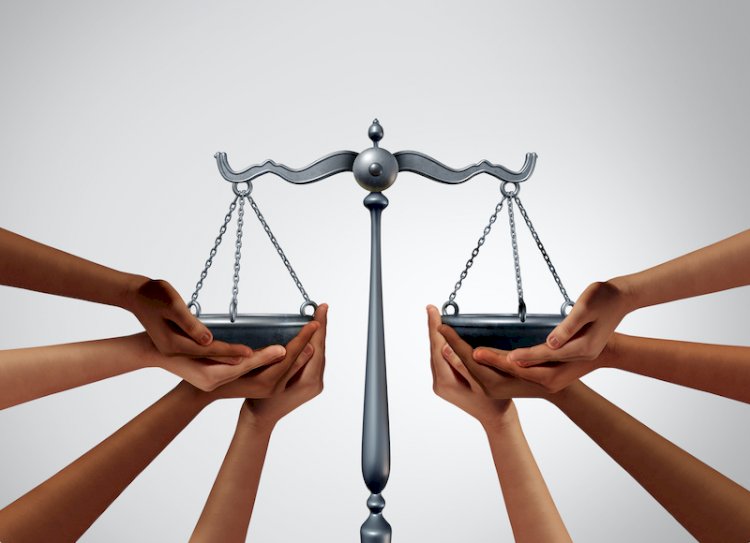


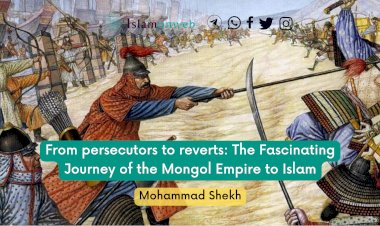
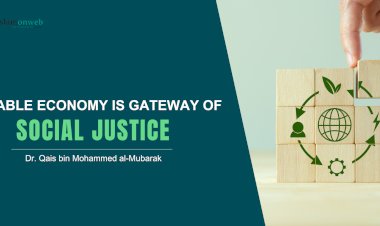
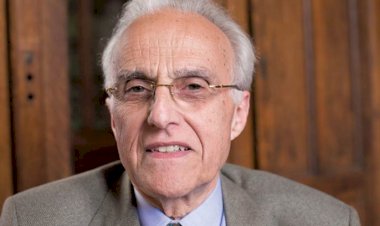
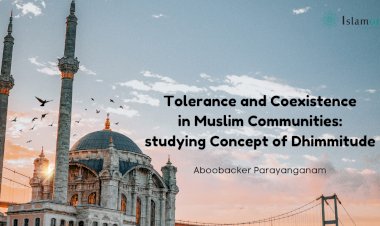
















Leave A Comment